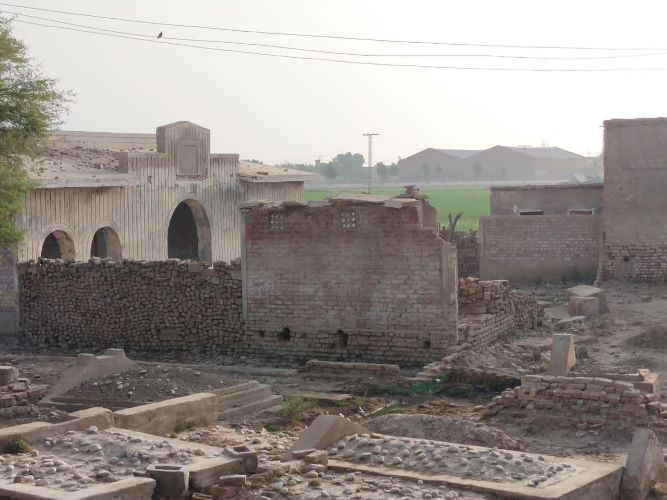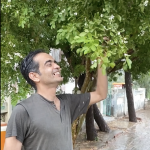
Author shares his observations of pathetic conditions of schools located in flood-affected areas of Sindh’s Dadu district
Zaheer Udin Babar Junejo
Recently, I was tasked with conducting an assessment of the hazards and vulnerabilities faced by flood-affected schools in Dadu District. Considering the extensive damage experienced by Khairpur Nathan Shah and Meher Tehsil, my mission involved visiting approximately 20 schools within these Tehsils. During these visits, I had the privilege of engaging with parents, students, teaching and administrative staff, as well as some representatives from the Tehsil and district administrations. Despite the relentless sun, persistent electricity shortages, limited access to clean water, and, in some instances, the absence of proper restroom facilities, these schools were overflowing with students. The remarkable enthusiasm and ambition of the teaching staff, who aspired to excel in competitive exams administered by IBA and Sindh Testing Services, deserve the utmost admiration.

Neither district nor provincial authorities have advocated for more suitable and resilient school structures that can withstand shocks and disasters
While inspecting these schools and observing their frail and vulnerable structures, I couldn’t help but empathize with the challenges faced by these children and their dedicated teachers, especially the female educators who often traverse great distances from their homes. These poorly structured schools lacked adequate ventilation, subjecting students and staff to stifling heat in one of the hottest regions of our homeland.
Also read: Educationists call for developing flood-resilient education system in Sindh
I find it puzzling that neither our district nor provincial authorities have advocated for more suitable and resilient school structures that can withstand shocks and disasters. It’s astonishing that in the 21st century, no one has proposed implementing summer hours for education to reduce exposure to extreme heat for our children. Why have we failed to provide essential amenities like drinking water and restroom facilities to institutions where our future leaders are meant to find inspiration and equip themselves for the challenges of a technology-driven global community? I don’t know what kind of aspirations we are nurturing in the minds of these young learners.
Will it still take another half-century to access and enjoy the basic human rights
During my visits to these rural and semi-urban areas, I encountered a girls’ school situated within a courtyard that had a graveyard within the same premises. The boundary wall was severely damaged, and the roof had numerous cracks, yet this humble building was an educational haven for over 200 girls. Imagine, I am describing an area that the national media often portrays as steeped in tribal beliefs and values, an area notorious for honor killings. Yet here, girls were bravely crossing graves to enter a classroom with a crumbling roof. Dedicated, well-educated female teachers, who earned their position through a competitive exam, were sacrificing their time to provide education. Where are our social activists, political leaders, and influential figures when it comes to alleviating the suffering of these girls?
Even after 76 years of independence, people haven’t received the respect and opportunities they deserve
When inquiring about coping and resilience strategies, it is evident that these resilient communities will not abandon their homes, no matter how many times they endure the harshness of nature. Even after 76 years of independence, they will fail to receive the respect and opportunities they deserve, even if their customs and traditions are disregarded by relocating to safer locations. Regardless of how many times they rebuild after losing their hard-earned belongings, they will remain steadfast in these regions marked by natural hardships. Will it still take another half-century for them to access and enjoy their basic human rights, as guaranteed by the laws of the Islamic Republic of Pakistan? Delegating authorities at the local level, allowing them to plan appropriately, and capacitating them with community-driven development may help them to release some of their sufferings.
Also read: Cataclysmic floods destroy 40% schools in Sindh
___________________
 Zaheer Udin Babar Junejo, based in Hyderabad, Sindh is a specialist in Institutional Development, MEAL (Monitoring, Evaluation, Accountability, and Learning), and Fundraising.
Zaheer Udin Babar Junejo, based in Hyderabad, Sindh is a specialist in Institutional Development, MEAL (Monitoring, Evaluation, Accountability, and Learning), and Fundraising.